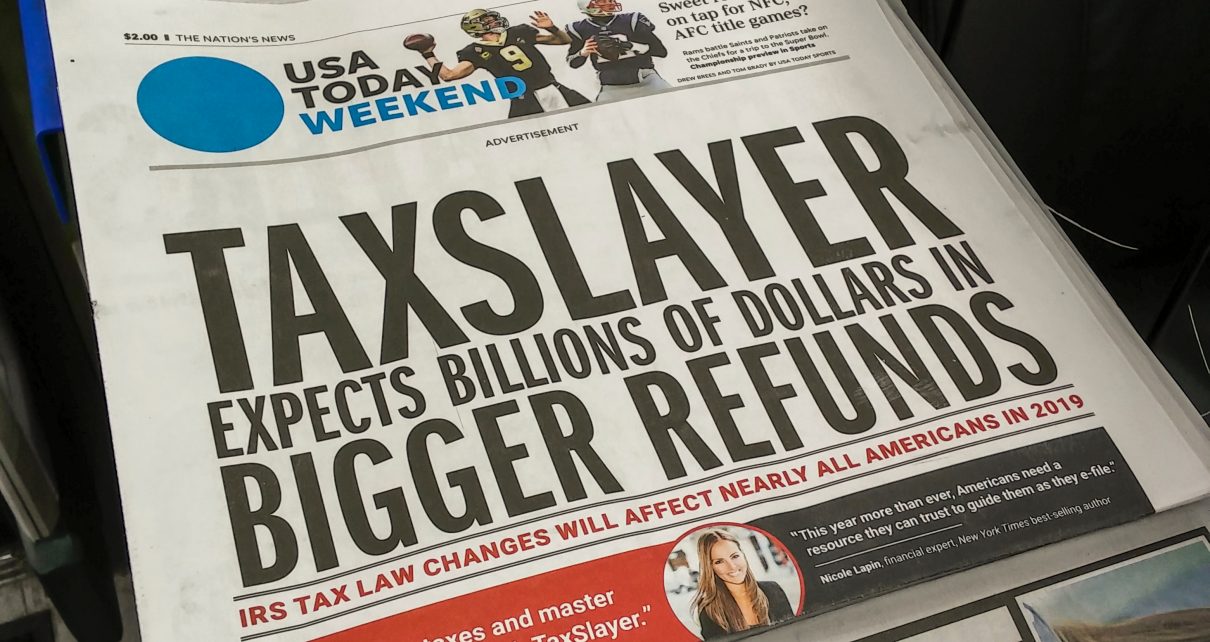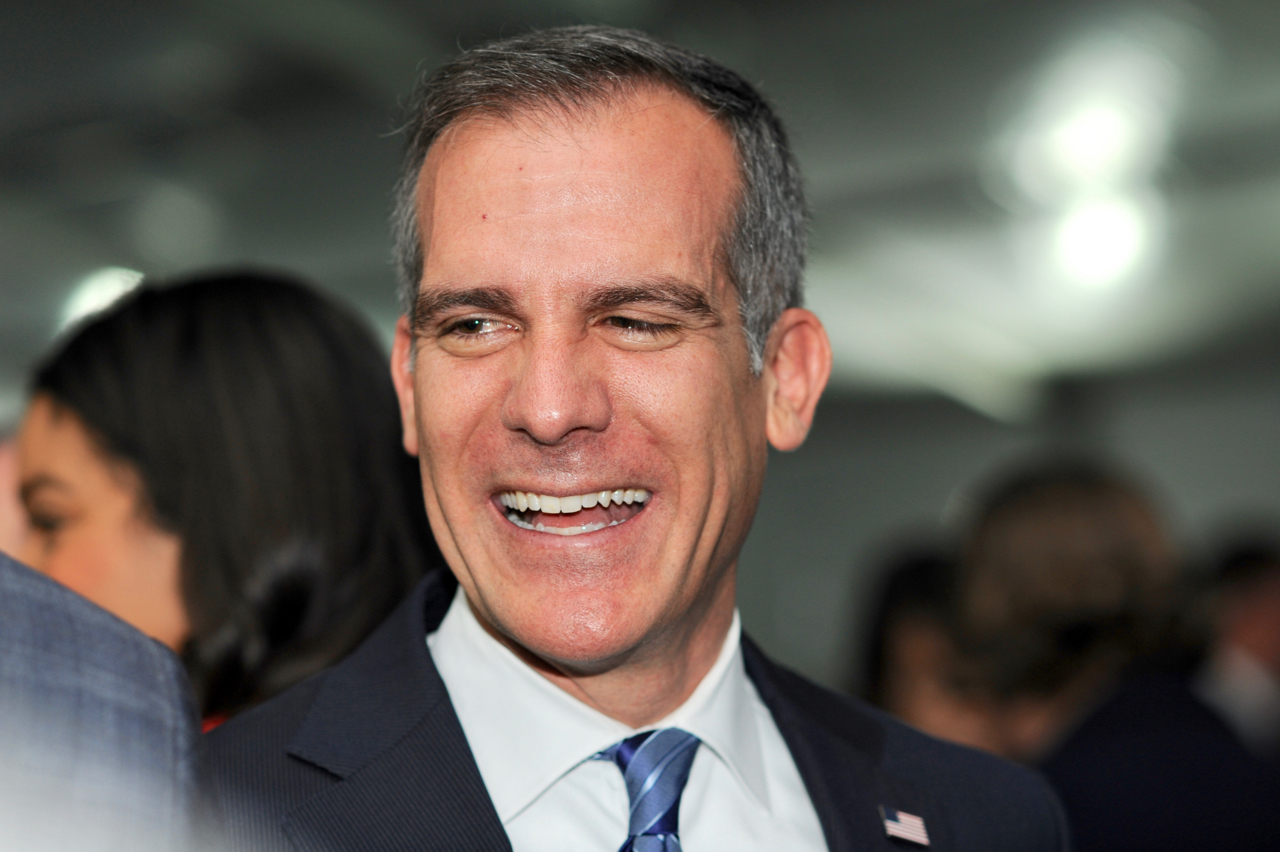
Weekend edition of Gannett's USA Today. (Photo: rblfmr, Shutterstock)
Nation’s Largest Newspaper Chain to Cut Back on Offering Opinion
Will other major dailies follow suit?
By Martin Marks, August 9, 2022 10:00 am
The lead editorial column in a recent San Francisco Chronicle laments that Gannett, the nation’s largest newspaper chain, is moving toward a cutback in their editorial opinions. And those at the Chronicle and other media outlets who thrive to offer opinion, and more importantly sway that of the public, are not happy.
Gannett not only owns its flagship paper USA Today, but also 260 other dailies and more than 170 weeklies across the nation. They are also bleeding money. According to the Washington Post, Gannett lost $670 million in 2020 and $135 million in 2021. In strategizing and planning that had begun as early as 2018, Gannett has begun to recommend and make some rather draconian cuts in order to stem the financial hemorrhage, and it’s the editorial pages that have been targeted. But even Gannett itself is open enough to acknowledge that it isn’t necessarily the opinion pages being targeted for cuts, but rather opinions in and of themselves.
In formal recommendations made in an internal report offered by a committee of editors, Gannett proclaimed:
“Readers don’t want us to tell them what to think. They don’t believe we have the expertise to tell anyone what to think on most issues. They perceive us as having a biased agenda.”
Imagine that. Newspapers having a biased agenda. But it doesn’t end there. The Gannett editors went on to say:
“Today’s contemporary audiences frequently are unable to distinguish between objective news reporting and Opinion content,”
Unquestionably, with the advent and prominence of digital media, print media has diminished and in some cases gone belly up. Along with the arrival of digital media came other media platforms—social media in particular—where opinions are ubiquitous, and biases hardly go undisguised. Some argue that this is where readers—especially those of younger generations–apparently get lost. Grown to expect biased opinions flashing across their computer screens and hand-held devices on platforms such as Twitter and Facebook, readers are reflexively conditioned to anticipate the same biases in digital newspapers ostensibly representing themselves as unslanted delivery of news.
And while the observation that biased opinions have seeped their way into news reporting outside the opinion pages of prominent newspapers is nothing new, it is astonishing that newspaper editors are finally owning up to it. And they now have to. The Gannett report also indicated the cold hard fact that editorials and opinion columns are not only among our “least read content,” but they are “frequently cited” by readers as a reason for canceling their subscriptions.
Ouch.
Moving forward, many of the Gannett papers will limit the number of days that Op/Eds are run, reduce or eliminate letters to the editor, eliminate nationally syndicated columnists, and will only endorse candidates in local races.
Yet, the opinion columnists writing for the San Francisco Chronicle and other left-leaning media outlets feel that Gannett is waving the white flag in the media’s long-standing and ever-increasing efforts to influence public opinion. Edward Wasserman, a professor and former dean at the Graduate School of Journalism at UC Berkeley, writes for the Chronicle about the Gannett decision:
“So the question remains whether humility, its owners’ quest to be profitable or a simple loss of nerve is driving this new policy.”
Wasserman goes on:
“But at a moment when the country is convulsed by rancor over broad political direction, when deeply anti-democratic forces of unprecedented size and resolve are putting core institutions in jeopardy, it’s impossible to see Gannett’s move as anything less than a sweeping act of unilateral disarmament.”
Clearly, the San Francisco Chronicle sees itself as much more than a media outlet charged with reporting straight, unbiased news. There will be no white flag of surrender for the progressives writing at the Chronicle. Evidently, the editors and columnists there view their role as being armed to fight the battle for the souls and minds of the American people—whether that battle is waged on its opinion pages or intermingled in the areas of the periodical typically reserved for the aforementioned straight unbiased news.
And from the Washington Post:
Opinion pages began to appear widely in U.S. newspapers in the 19th century, and most papers have since built a code of ethics around them, including firewalls to prevent opinion columnists and editorial writers from influencing news reporters and news editors who often work in the same building.
Yet to read the Post, The San Francisco Chronicle, The L.A. Times, The NY Times, and dozens of other major print and digital newspapers, it is patently obvious that this firewall no longer exists, and these well-known publications are unapologetic in breaching it. To be sure, this approach has cost the Gannet papers readership and corresponding revenue—by their self-evaluation, and their decision to rein in publication of opinion in their extensive stable of periodicals is the result.
Whether other newspapers follow suit is doubtful, or at best yet to be determine. Suffice to say that reports have shown that newspaper publishing revenue in general has steadily fallen over a 15 year period 2005-2020; well over 50% during this period. Numerous factors likely contribute to the decline–most notably the steady evolution from print to digital subscriptions and readerships.
Yet in light of Gannett’s study and report, it is hard to discount that the decline in revenue for newspapers in general is also attributable to the media’s overt, and at times subtle mission to influence public opinion—a now verifiable reality according to Gannett.
It is hard to imagine in 2022 and beyond that major newspapers outside the vast Gannett empire will also relent and temper their desire to influence public opinion. In fact, it is more likely that we’ll continue to see the opposite; a ramping up of overtly slanted editorial pages, and a not-so-subtle infiltration of opinions in news reporting—even if it means the continued loss of readership and revenue and perhaps some newspapers’ ultimate demise.
- Dodgers’ Ohtani Embroiled in Gambling Scandal - March 22, 2024
- Overwhelming Migrant Ingress Shifts To California - March 5, 2024
- Bay Area School District Parting Ways With Woke Kindergarten Program - February 15, 2024





Go “woke’, go BROKE, eh, Gannett???
“Readers don’t want us to tell them what to think. They don’t believe we have the expertise to tell anyone what to think on most issues. They perceive us as having a biased agenda.”
I beg to differ, I do not perceive it as biased, I absolutely KNOW it is biased! Not just biased but it is full on propaganda.
I don’t subscribe to news sources that seem biased to me, particularly when biased against my own beliefs. Thus, my only current subscription is to The Epoch Times, which at least TRIES to be impartial on all topics other than the Chinese Communist Party, which it hates for good proven personal reasons.
Although I liked and read the weekly opinion column by Libertarian law prof Glenn H. Reynolds in the U.S.A. Today, his column was eventually cancelled and moved to the N.Y. Post, where I still read it. Nothing else in U.S.A. Today has ever interested me.
A simple litmus test of impartiality is this. If a newspaper is unable to mention an allegation by ex-President Trump that the 2020 election was stolen without adding the word false, then it is not worth a penny from me. I don’t insist that a paper agree with Trump on anything, but I do insist that it at least report news mentioning him without blatantly taking sides. That’s what first drew me to The Epoch Times – they were almost the only news source able to mention his name without spitting. They still fully presented arguments against him, but not ONLY the arguments against him like nearly all other news sources.
I have asked the Sacramento Bee repeatedly to offer an editorial free newspaper and they refuse. So as a potential customer I would have to endure their bogus opinions to get area news.
They just can not accept that the internet has democratized news. I can fact check them as well as catch them altering linked titles to be more sinister. They refuse to admit that their opinions are irrelevant. So it is only a matter of time until they fold.